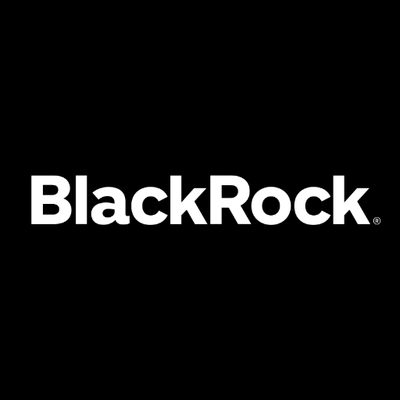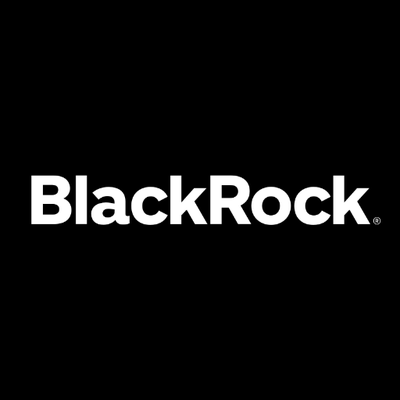BlackRock Throgmorton Trust plc (LON:THRG) has announced its portfolio update.
All information is at 31 July2022 and unaudited.
To learn more about the BlackRock Throgmorton Trust plc please follow this link: blackrock.com/uk/thr
Performance at month end is calculated on a cum income basis
| One Month % | Three months % | One year % | Three years % | Five years % | |
| Net asset value | 10.0 | -7.1 | -30.6 | 14.4 | 35.1 |
| Share price | 16.8 | -2.5 | -33.2 | 18.3 | 57.4 |
| Benchmark* | 4.8 | -6.6 | -16.0 | 15.3 | 11.7 |
Sources: BlackRock and Datastream
*With effect from 22 March 2018 the Numis Smaller Companies plus AIM (excluding Investment Companies) Index replaced the Numis Smaller Companies excluding AIM (excluding Investment Companies) Index as the Company’s benchmark. The performance of the indices have been blended to reflect this.
| At month end | |
| Net asset value capital only: | 642.10p |
| Net asset value incl. income: | 648.91p |
| Share price | 635.00p |
| Discount to cum income NAV | 2.1% |
| Net yield1: | 1.7% |
| Total Gross assets2: | £662.4m |
| Net market exposure as a % of net asset value3: | 100.2% |
| Ordinary shares in issue4: | 102,079,437 |
| 2021 ongoing charges (excluding performance fees)5,6: | 0.57% |
| 2021 ongoing charges ratio (including performance fees)5,6,7: | 1.38% |
1. Calculated using the 2022 interim dividend declared on 28 July 2022 and payable on 26 August 2022, together with the 2021 final dividend declared on 07 February 2022 and paid on 31 March 2022.
2. Includes current year revenue and excludes gross exposure through contracts for difference.
3. Long exposure less short exposure as a percentage of net asset value.
4. Excluding 1,130,427 shares held in treasury.
5. Calculated as a percentage of average net assets and using expenses, excluding performance fees and interest costs for the year ended 30 November 2021.
6. With effect from 1 August 2017 the base management fee was reduced from 0.70% to 0.35% of gross assets per annum.
7. Effective 1st December 2017 the annual performance fee is calculated using performance data on an annualised rolling two year basis (previously, one year) and the maximum annual performance fee payable is effectively reduced to 0.90% of two year rolling average month end gross assets (from 1% of average annual gross assets over one year). Additionally, the Company now accrues this fee at a rate of 15% of outperformance (previously 10%). The maximum annual total management fees (comprising the base management fee of 0.35% and a potential performance fee of 0.90%) are therefore 1.25% of average month end gross assets on a two-year rolling basis (from 1.70% of average annual gross assets).
| Sector Weightings | % of Total Assets |
| Industrials | 29.5 |
| Consumer Discretionary | 21.1 |
| Financials | 13.4 |
| Technology | 7.5 |
| Health Care | 7.1 |
| Consumer Staples | 4.3 |
| Telecommunications | 2.9 |
| Basic Materials | 1.4 |
| Energy | 1.2 |
| Communication Services | 0.3 |
| Net Current Assets | 11.3 |
| —– | |
| Total | 100.0 |
| ===== | |
| Country Weightings | % of Total Assets |
| United Kingdom | 93.3 |
| United States | 4.4 |
| France | 1.6 |
| Australia | 0.8 |
| Germany | -0.1 |
| —– | |
| Total | 100.0 |
| ===== |
Market Exposure (Quarterly)
| 31.08.21 % | 30.11.21 % | 28.02.22 % | 31.05.22 % | |
| Long | 119.4 | 121.3 | 121.8 | 104.8 |
| Short | 2.4 | 2.7 | 2.3 | 3.3 |
| Gross exposure | 121.8 | 123.9 | 124.1 | 108.1 |
| Net exposure | 117.0 | 118.6 | 119.5 | 101.5 |
Ten Largest Investments
| Company | % of Total Gross Assets |
| Electrocomponents | 3.6 |
| Watches of Switzerland | 3.2 |
| CVS Group | 3.1 |
| Oxford Instruments | 2.9 |
| Gamma Communications | 2.9 |
| Auction Technology Group | 2.9 |
| Ergomed | 2.5 |
| Computacenter | 2.4 |
| WH Smith | 2.4 |
| Dechra Pharmaceuticals | 2.3 |
Commenting on the markets, Dan Whitestone, representing the Investment Manager noted:
The Company returned 10.0%1 during July, outperforming the Numis Smaller Companies plus AIM (excluding Investment Trusts) benchmark which returned 4.8%1. Outperformance during the month was in part due to a broader recovery in our long book but more specifically driven by several holdings delivering positive updates which were very well received by the market.
July witnessed a broader market recovery, aided by a fall in the oil price and less hawkish rhetoric from the Federal Reserve, all feeding a sense of general relief that both inflation and interest rate expectations can moderate. During June the US 10 year yield had reached over 3.4% but by the end of July it had fallen back to 2.6% illustrating the rapid fall in rate expectations notwithstanding the 75bps added to the Fed Funds rate (Federal Reserve Effective Rate) in June and again in July. While the US yield curve is indeed higher at all points than it was at the start of the year, it has now at least moved to become downward sloping after 12 months, which reflects a more recent view that inflation can be controlled, and rates need not rise inexorably, indeed they may fall back in due course. In this light we think valuations of equities look oversold, especially growth equities which had been priced with starting FCF (free cash flow) yields often over 4% or even 5% at one stage. In July the areas of the market that had fared worst for the first half of the year rebounded the most and resulted in UK small & mid-caps outperforming the large-cap FTSE 100 Index.
The top contributor was RS Group (formerly Electrocomponents), a company which has delivered several strong updates this year with upgrades to forecasts but has continued to fall on broader concerns of an economic slowdown and the market’s desire to de-rate growth companies. Whilst not immune to an economic downturn, we think RS Group is well positioned both strategically and financially to continue to win market share in the US and we believe those share gains can accelerate so that has the potential to create significant shareholder value in the coming quarters and years. In July, RS Group delivered another strong update, confirming growth of organic revenues of 18% in Q1 of its new financial year and the shares rebounded in the period. Why this update was treated so differently to any other is a combination of a falling share price this year – despite ongoing positive revisions to forecasts resetting the valuation to a level we thought unsustainable and also the company continues to deliver growth in excess of expectations highlighting the market share gains it is achieving. Similarly, YouGov, which has been sold off during the year despite having shown no signs of its growth slowing, rebounded in July as management confirmed that the business remains on track to meet expectations with positive performance across all its divisions. Shares in 4imprint rose in response to a strong trading update with significant upgrades to guidance (further upgrades came in the first week of August), as the businesses marketing strategy continues to pay off, driving continued market share gains in its highly fragmented market.
On the negative side, several of the largest detractors were companies that we do not own which rallied with the market. The largest detractor was Alliance Pharma which provided a somewhat disappointing trading update, impacted by Chinese lockdowns and order phasing for one of its key products, with the full year guidance weighted towards its second half. The market recovery weighed on our short book, notably a UK retail business and a UK RMI business which both experienced strong share price rises during the month.
July provided a welcome respite from the widespread risk-off environment that has created such a challenging backdrop to our strategy in the year to date. The economic outlook remains uncertain but there are grounds for optimism post a large pullback in the oil price, as well many data points showing easing of supply chain challenges, both of which could help to ease inflation over the coming months.
As stated in last month’s update, generally the negative updates at the corporate level in the UK have been focused on consumer spending in big ticket items or genuinely discretionary categories. Our long book continues to trade well (testament to product or brand strength, defensive or secular demand, and/or market share gains) so the weakness is more de-rating than in response to earnings changes, though of course that may follow. However, we remain confident in the holdings in the portfolio, which are well financed businesses, with enduring long term organic growth prospects that will use this period to enhance their position to win more market share. And while we wait for this to play out, we take comfort from the increasing number of company buybacks we are witnessing as Management teams retire their equity at current valuations. The gross is around 105% and the net 100%. We thank shareholders for their ongoing support.
1Source: BlackRock as at 31 July 2022
To learn more about the BlackRock Throgmorton Trust plc please follow this link: blackrock.com/uk/thrg






































